|
Gluten Free Vitamins for the Gluten Free Diet
Many visitors to this website have written and asked me about gluten free vitamins and what is safe to take on the diet. Not all vitamin brands are gluten free, and getting glutened by a your daily vitamin is the last thing any of us need. While I am not a doctor, and cannot give medical advice, I think it is important for everyone to be able to use something safe. So I am going to tell you what my husband and I use. We have been using these products for several years, and they have helped a lot. You should check with your health care provider before starting a vitamin regimen.
Life Without VitaminsBefore taking a multivitamin, I used to get cracks at the corners of my mouth, especially in the winter. I bruised easily, and was always very tired. One way that I know how much my multivitamin helps me, even now, after about 5 years on the diet, is by how I feel if I forget to take it for more than a day or two. Sometimes life gets busy, I get interrupted at the time I normally would take it, or company comes by and I am distracted. Usually I feel really tired and draggy, my skin is extra touchy, my lips are getting that wanting to peel thing, and my muscles don't want to work well. All these are signs of vitamin B deficiency. Then it dawns on me that I have missed the last 3 days or so of my multivitamin, and probably some other vitamins I take as well. If my legs cramp, then I know I forgot the calcium too. The B vitamins in the multivitamin are water soluble and need to be taken daily. Our regimen is actually very similar to the one recommended by Dr.Oz in the following video. We include a different supplement for the extra Vitamin D which also includes K2, because for those with intestinal damage or inflammation, the production of K2 in the intestines is most likely compromised. K2 is vital to improve bone density. We also include a probiotic to try to improve the environment in the intestines, which would eventually then make the K2, at least that is the hope. Remember, he is advocating these vitamins for someone
with normal digestion, and not already suffering from low
levels like those of us with Celiac disease or Irritable
Bowel Syndrome. We need the nutrition even more. We
can't absorb B12 through the intestines as well as someone
with healthy intestines.
Gluten Free Vitamins We UseMy husband and I both take Twinlab Daily One Caps. These vitamins are quite potent.
They come in a version with iron, or without iron. If you know you are low in iron, then the one with iron may be best for you. For men, and women post-menopause, you may want to use the ones without iron. While most people newly diagnosed tend to be low in iron, it can build up to unhealthy levels after a time, and cause other problems. My husband takes the ones without iron most days, then takes one with iron about twice a week. I just take the ones without iron. I always take them with a meal, as they are strong and can cause nausea on an empty stomach. They have a very good balance among the B vitamins. They do not include vitamin K, so can be used by those on a blood thinner as well. I asked the company about other allergens as well, and this was the reply: "Vitamin C is derived from corn, it does not contain any protein from corn. Vitamin E is derived from soy, no soy protein. No derivatives from dairy, yeast or gluten." The Twinlab Daily One Cap is over $43 at our local Farmer's Market. Online at Vitacost you can buy it for less than half of that price. I buy large bottles to keep it simple and minimize shipping cost. I group my purchases so that the total is over $49, and then shipping is free. You may want to check on the price locally and see if it would benefit you to buy your vitamins online. The bottle with 180 capsules will last one person about 6 months.
B12 and Calcium/MagnesiumBecause vitamin B12 does not get absorbed well in a damaged intestine, and the lack of it can bring on symptoms of B12 deficiency, including anemia and lack of nerve conduction, numb hands and feet and other distressing problems, a sublingual lozenge in addition to the multivitamin is part of our regular routine. In the beginning, we took it every day. Now, we take it 3-4 days per week. I really enjoy the flavor, and you can feel a difference in your energy from it. It can be absorbed when held under the tongue even with damaged intestines. We like the Country Life Biochem Superior brand, as the methylcobalamin form is more effective. It does not require conversion in the body before being usable. Depending how often per week you take it, the 120 lozenges can last 4-7 months.
To support our bones and teeth, along with muscle function, we both also take a calcium and magnesium supplement. With the tendency to get Osteoporosis so common among Celiac patients, it is important to ensure adequate amounts. My husband already has Osteoporosis, so it really is important. We like the Country Life brand. It is not chewable, but if you hold it in your mouth for a few minutes, it begins to dissolve, so it will be easy to digest and assimilate. It has 180 tablets, but should be taken 2x a day, several hours after the multivitamin. So a bottle would last one person about 3 months. This formula has the recommended 2:1 ratio of calcium to magnesium. Vitamin D and KThe Twinlab multivitamin does not contain Vitamin K1. This is a fat soluble vitamin. It is often low in Celiac patients, and it is responsible for blood coagulation. Aspirin and anti-coagulant medications can interact with K1, and if you take these prescription blood thinning medications (ie:Warfarin, Coumadin) you should check with your doctor before taking any form of vitamin K. Vitamin K is included in the form of K2 in the following vitamin D3 supplement. Vitamin D deficiency is often a major component of Osteoporosis in those with Celiac disease or other intestinal problems. Without vitamin D, the body can't absorb and utilize calcium for the bones and teeth. K1 from FoodVitamin K1 is abundant in leafy greens, broccoli, cabbage, cauliflower, spinach, chard, kale, avocado and grapes. It is easier to assimilate if the food includes some fat, like oil, in an oil and vinegar dressing on your salad. Without the fat it is kind of hard to absorb. If you eat 1/2 cup of chopped, cooked broccoli, or 1 cup of green leaf lettuce salad daily, you will consume about the amount needed for the daily requirement. Canola and Olive oil also contains small amounts. (Iceberg and Romaine lettuce do not have as much K1 as green leaf lettuce). If your bone density is normal, and your vitamin D levels are in the normal range, then you can just get K1 this way and don't need to use the D3 and K2 supplement. You might want to consider having your extra D3 included in the Calcium/Magnesium supplement. Country Life makes that formula too. Just remember to get some sun to boost your vitamin D a couple of times a week.
Vitamin K2 is synthesized by bacteria in the intestines. It is responsible for bone mineralization, and has been used to help osteoporosis in Japan since 1995. It is not affected by aspirin or other anticoagulants. Those with damaged intestines often are short on K2. It also helps normal coagulation in blood, although the liver prefers to use K1 if available. Vitamin D3 and K2The multivitamin does contain the minimum daily amount of vitamin D, but it may not be enough for most people. We don't spend as much time out in the sun as we used to, and if we don't make our vitamin D from sunshine, then we need to supplement it, especially in winter.
The Twinlab D3 dots with vitamin K2 helps bring up the amount of Vitamin D available, and the K2 form of vitamin K is the one that helps with bone mineralization. So my husband takes this product daily. (His bone density was beginning to increase according to his last Dexa Scan, much to his doctor's surprise.) I use something else because of my soy intolerance. This is the easiest and least expensive way for most people. (The product I use is very expensive, but the soy gives me no choice) My husband has abnormally low cholesterol, and does not make enough Vitamin D from the sun, and we live in Arizona! This is a 2 month supply, 60 dots. These, like the B12, are sublingual and don't need to be digested. This is a better approach for mineral absorption and increasing bone density. It is very inexpensive for the difference it can make. If you have OsteoporosisYou really need to read my husband's story if you have osteoporosis. If you are worried about losing more bone density, please read this page and find out how he not only stopped losing bone density, but reversed the process and REGAINED much of his bone density. Vitamin D-Ostoporosis If you are dealing with Osteoporosis or Osteopenia, you should add one more item to the list. The multivitamin has all the co-factors like copper, molybdenum, zinc, etc except one that you do need to rebuild bone. That one is Boron. ( My husband takes an additional supplement for males that includes boron) I recommend the Twinlab Tri Boron be added to the multivitamin, B12, D3 and K2 and Calcium Magnesium. You have enough of the other co-factors in the multivitamin, you don't want to get too high. Contains 100 capsules, 3 months worth. Any gluten free boron will work, of course. I just really like Twinlab products because they are high quality. These are the vitamins that we take mainly due to the intestinal issues caused by gluten. We take these daily, and I think all of them are very important, especially while healing. Even after 5 years though, they are still making a difference.
General Health Gluten Free VitaminsWe also take fish oil, as the Omega 3 oils are hard to get in other ways, and are essential for the body to function properly. Unless you eat a lot of salmon or sardines, you should supplement it. Twinlab makes a nice softgel with the oils needed most. They do contain a small amount of soy oil. The Megatwin EPA fish oil is a good addition to anyone's regimen. Country Life also makes a less expensive one, and it is also gluten free. Digestive AidsFinally, if you need a little help digesting your food better, a digestive enzyme can do wonders. Especially with a greasy, or high fat meal like ham or fried chicken. Our intestines sometimes need some help, and our pancreatic enzymes might not be available in the quantity we need.If you feel this may help you, we like Source Naturals Essential Enzymes. These can just be taken as needed, the bottle holds 120 capsules. This is our gluten free vitamin regimen. You can take the ones you feel you need. I do feel everyone should take a multivitamin, because those B vitamins need replenishing daily. Lack of B12 for long periods of time can cause permanent, irreversible nerve damage, so I consider that essential too. The Omega 3 from fish oil is something the body needs too. The calcium/magnesium and vitamin D3/K2 will depend on your personal situation. I hope that you found this information helpful. I want to add that this site will get a small compensation (at no additional cost to you) if you make a purchase through any of the above links. It helps to support this site. If you wish to order any of the items, clicking on the picture or the text next to the picture will take you to the site. Oh, and I almost forgot to mention that they also have several gluten free food items, including hemp milk. So you may want to check those too. You can look at what is available through the search bar on the Vitacost website. Just type in "gluten free foods".
from Gluten Free Vitamins back to Healing
|





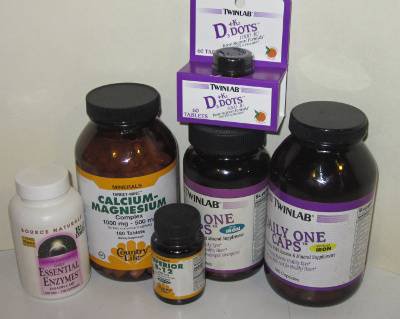
 Twinlab No Iron
Twinlab No Iron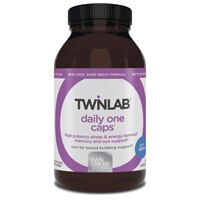 Twinlab With Iron
Twinlab With Iron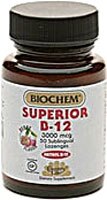 Superior B12
Superior B12 Calcium Magnesium
Calcium Magnesium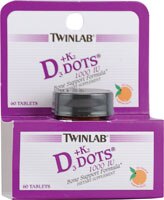 D3 and K2
D3 and K2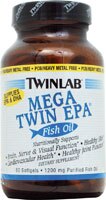 Megatwin Fish Oil
Megatwin Fish Oil